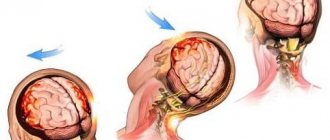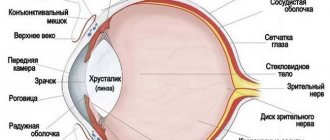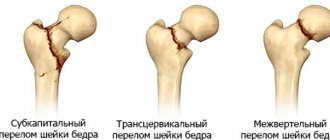Definition of suffocation
Choking is the extreme expression of shortness of breath, which manifests itself in such an acute feeling of lack of air that it is accompanied by the fear of death. Sometimes the term “asphyxia” is used, but in general this condition is simply a type of difficulty breathing. Choking develops acutely when the respiratory tract is damaged, for example, when a foreign body enters, pneumonia and pneumothorax, tumors of the trachea, larynx and bronchi, bronchial asthma, lung cancer. Severe suffocation can develop with cardiovascular diseases, such as pericarditis, heart disease, myocardial infarction.
Causes of asthma attacks
The cause is always a fairly serious illness. This:
- Anaphylactic shock;
- Edema of the larynx;
- Diphtheria;
- Pulmonary edema;
- Bronchial asthma;
- Myocardial infarction;
- Pericarditis;
- Chronic obstructive pulmonary disease;
- Pneumothorax;
- Lung cancer;
- Carcinoid syndrome;
- Hyperventilation syndrome;
- Traumatic asphyxia;
- Foreign body in the respiratory tract;
- Asphyxia of newborns;
- Panic attack;
- Recession of the tongue during attacks of epilepsy, convulsions, and so on;
- Drowning.
All these reasons can be divided into three groups: foreign bodies and injuries, tongue retraction, drowning; allergic reactions (larynx edema, pulmonary edema, anaphylactic shock) and the consequences of diseases (lung disease, heart disease, cancer).
Neurological disorders that cause suffocation
The feeling of suffocation is often caused by neurological disorders. A considerable part of the population, and especially the female part, suffers from panic attacks. The causes of this condition are varied - prolonged stress, emotional stress, sleep disturbances. People who are suspicious and have an anxious character are especially susceptible to panic attacks. Signs of an incipient panic attack are a growing feeling of anxiety, a rapid heartbeat, a feeling that everything that is happening is unreal, tremors of the hands, a feeling of intense fear, a feeling of compression of the neck and throat, and, finally, spasms that cause attacks of suffocation.
Manometry measures the pressure exerted by the esophagus and can determine whether the pressure exerted by the lower esophageal sphincter is sufficient to prevent reflux. Monitoring the pH of the lower esophagus may raise the acidity of digestive fluids flowing from the stomach into the esophagus.
Symptoms of a asthma attack
Laryngospasm associated with sleep. Laryngospasm is a sudden contraction of the vocal cords. This contraction causes the vocal cords to fuse and block the airway. When laryngospasm occurs during sleep, a person is unable to inhale or exhale. After a few seconds, the airways partially open. This causes a high-pitched sound when inhaled. Within about 1 minute, laryngospasm ends and the person is able to breathe normally. This can cause fear and panic as the person tries to catch their breath.
On average, a panic attack can last from five minutes to half an hour.
First aid for choking
- Call an ambulance. Try to remain calm - your screams and incoherent speech will not make it clearer to the dispatcher where and to whom to go. You will panic later when the victim breathes on his own.
- Explain to the patient (if he is conscious) what actions you will take and why - you need to eliminate panic as much as possible.
- If the cause of asphyxia is a foreign body, you should try to remove it. To do this, you need to grab the patient from behind (the patient is standing). If the patient is unconscious, he is placed stomach down, bending him over his knee or chair. The fingers of one hand are clenched into a fist - with the thumb, press on the stomach area, up from the waist. The second hand is placed on the fist - you need to sharply push inward and upward, under the ribs. You should be careful - too strong movements can lead to cardiac arrest.
- If assistance is provided to a child: the child is placed upside down and patted on the back with sharp, but not strong movements. Children under three years old need to hold their heads - the cervical vertebrae are weak, and you can break your neck.
- If the cause of asphyxia is a recessed tongue due to an attack, the patient is placed on his back, with his head turned to the side. The tongue is pulled out and attached to the lower jaw in any available way (pinned with the same pin).
- Artificial respiration and closed cardiac massage - if a person is unconscious and breathing, there is no pulse.
- If the cause of suffocation is an asthma attack, allergic edema of the larynx or lungs, you need to free the patient from a tie, tight clothing, and provide access to air (open the windows). In case of an allergic reaction, try to eliminate the allergen, give an antihistamine, and drip vasoconstrictor drops into the nose. Give the patient a lot of warm liquid - this will remove the allergen from the body. You can give any sorbent, but you need to remember that the break between taking the antihistamine and the sorbent should be more than 30 minutes.
I have a lump in my throat and a feeling of suffocation.
Neuroses
This information is for general information purposes only. If you experience any of the listed disorders, it is better for you to seek advice from a psychotherapist.
THE ESSENCE OF THE PROBLEM:
CONTENT OF THE SERVICE QUESTIONNAIRE “Psychotherapy psychotherapist online”: Woman, 21-27 years old. Higher education, journalist, single, financially secure, separate housing. For a year now, after stress and overload at work, my arms and legs have gone numb, my face has goosebumps, my shoulders feel heavy, my neck hurts, I feel dizzy, I have a lump in my throat and a feeling of suffocation. The first time this happened in the subway, since then I have been afraid to travel alone on public transport, to go far from home. Getting to work is a real torture because of the fear of passing out somewhere along the way.
The tests are normal, my appetite is normal, my mood is normal. Performance is not affected. I took nootropics and tranquilizers for three months, but there was no relief. Cerebrolysin helped for a short time. But after another stress, everything started all over again. I react very strongly to changes in the weather - the condition worsens. Doctors cannot determine what is wrong with me. They think that I’m faking it, since my blood tests, blood pressure, appetite, etc. are normal. I don’t know how a doctor or psychologist can help. But it seems to me that there is something psychological in the fear of traveling in public transport. I would like to know your opinion. I have a generally stable psychological state. But I am very depressing and worried about my incomprehensible illness, because of which I have practically become disabled, since I have not been able to lead my usual life for almost a year. The tests are normal. Chronic diseases: gastritis, osteochondrosis. I constantly experience autonomic disorders: lack of air, lump in the throat, headaches, numbness of the limbs. The mood is mostly normal. Sleep is normal. Can't sleep during the day. A feeling of exhaustion after sleep sometimes occurs.
Appetite is good. I don't lose or gain weight. I eat more if I'm nervous. Taste preferences have not changed. I drink alcohol little and rarely. There was no systematic abuse. I have never tried drugs or psychotropic drugs. Performance is normal, memory and attention are not impaired. No problem. I understand people normally, as for their understanding - it depends on the situation and the specific person, but usually I can convey my opinion to others. Like every person, I have ill-wishers, but no one is trying to make my life worse. Hypnosis, unusual experiences, voices, etc. never experienced it. Dizziness and staggering occur. Now I don't have a man. There were no sexual difficulties. The symptoms that bother me are quite stable. Recently, during treatment with Cerebrolysin, they became significantly weaker. But in the last week they have intensified again. There are no other manifestations. I am active, emotional, inflexible, straightforward, sociable, stubborn, quick-tempered, I easily go into conflict, have a hard time forgiving insults, and endure difficult situations with fortitude. It's hard for me to say how people treat me. But judging by the relationship with loved ones, it’s probably normal. I had and still have achievements, especially in the field of career and study. Failures are mainly on the personal front. My illness began after stress and a conflict situation that lasted several months. A month after the conflict, my hands began to go numb, I felt dizzy and felt like I was about to lose consciousness. I took medications without effect, underwent a massage course - it got worse, acupuncture practically did not help. It helped and helps, but not for long, only Cerebrolysin. I am not taking any medications at the moment. I experienced a nervous breakdown four years ago when my mother was hospitalized with a suspected heart attack. I came out of this state on my own. Before the onset of the illness, there were serious problems at the institute and with loved ones. I had to constantly defend myself, be in the midst of a conflict, defend my opinion, and keep everything under control. This caused irritation and fatigue. My mother is a teacher, she is fifty-nine years old, and I live with her. I met my father at the age of ten; we have no family relations. There were strong quarrels, now we hardly communicate. I have a half-sister with whom I also don’t have a relationship. The closest to me is my mother.
My childhood was normal, the absence of my father did not interfere much, I was an ordinary child at school. I graduated from the Faculty of Journalism, I have been working in one place for five years, I am very pleased with the work. I changed my place of residence when I was eight years old. I have few friends, my relationships are smooth. I have one close friend. Things don't work out the way I would like with men. Marital status did not change. There were no suicidal thoughts. It is difficult to single out the most significant events in life. Death of loved ones, going to school or college, meeting a loved one, breaking up with him, getting a job, a new romance. Each time, life changed dramatically. Apart from my illness, no life circumstances bother me. Clinical test data: Beck Depression Test - 2 points Zung Depression Test - 35 points Sheehan Anxiety Scale - 46 points K. Leonhard's Characteristic Questionnaire 1. Hyperthymia: 21 points. 2. Excitable: 20 points. 3. Emotive: 18 points. 4. Pedantic: 6 points. 5. Anxious: 9 points. 6. Cyclothymic: 12 points. 7. Demonstrative: 12 points. 8. Unbalanced: 12 points. 9. Dysthymic: 9 points. 10. Exalted: 12 points. Psychotherapist Ilya Yuryevich Rasskazov ANSWERS: The feeling of a lump in the throat refers to psychogenic conditions, i.e. There is no organic reason that makes swallowing difficult. It occurs three times more often in women than in men. The fear of a lump in the throat often occurs in demonstrative individuals, with depression, lack of fulfillment in intimacy, and with conflicts. In your case, judging by the Beck and Zung tests, there is no depression, and the fear of a lump is most likely related to a conflict situation at work.
With fear of a lump, the situation of breaking the relationship of dependence comes to the fore. The reason lies in an ambivalent attitude towards the person with whom the conflict occurred - on the one hand, strong anger is experienced, on the other hand, a feeling of guilt for one’s own aggressive impulses. After stress at work, you apparently began to worry. You write that your “arms and legs are numb, your face is crawling, your shoulders feel heavy, your neck hurts, you feel dizzy, there is a lump in your throat and a feeling of suffocation.” You apparently had an episode of panic attack on the subway. The feeling of suffocation occurs during a panic attack, when increasing anxiety reaches its maximum - the degree of horror. Unpleasant sensations are fixed in your memory like a conditioned reflex. That is why, every time you go down to the subway, your body remembers an unpleasant feeling of horror, and you are afraid to ride alone in the subway. Fear of swallowing can be overcome with the help of revealing psychotherapy - therapy that reveals unconscious thoughts, emotions, and needs. But even after overcoming, the fear of the lump can return in crisis and conflict situations, according to the mechanism of the “Achilles heel” (weak, vulnerable spot). There are several ways to cope with a single panic attack. The main idea is that when you panic, you need to calm down and relax.
The state of suffocation, when it is difficult to take a breath, is subjectively very unpleasant. But there will be no serious consequences for life and health. Not a single case of death from an attack of suffocation during panic was recorded. Usually, when it becomes difficult for a person to take a breath, he fearfully begins to breathe deeper and more often, which only provokes the further development of a panic attack. If you feel suffocated, you need to do the opposite, exhale as much air as possible, or breathe into a paper bag (in your palm, handkerchief, scarf). This will help you relax and overcome a panic attack in 4-10 minutes. Single panic attacks that occur once or twice a month do not require hospitalization. Psychotherapy is recommended for the development of panic disorder, anxiety-depressive disorder. If the frequency of panic attacks begins to exceed 2-3 episodes per week, then in this case I invite you to take an online course of psychotherapy using the author’s Psychoalgorithm method >>
Treatment of suffocation
It is carried out by a specialized doctor, often in a hospital setting. Depending on the cause of suffocation, appropriate conservative or surgical treatment is prescribed.
Good to know
A pulmonologist is a guest on the program “Live Healthy!”
FAQ:
- Can death occur from suffocation?
Yes, maybe very quickly.
— What can cause suffocation at night?
This may be a symptom of increased venous pressure due to heart failure. You need to see a cardiologist.
Causes of the disease
The exact reason cannot be determined. Experts have conducted research and proven the enormous influence of the external environment and genetic factors. The causes of an asthmatic attack, symptoms leading to the risk of the disease, are determined by the following indicators:
Presence of animals, dust, mold in the house.
- Taking medications that cause bronchospasm.
- Being around smokers.
- Ecology.
- Viral infection.
- Spending a long time in a dirty room.
- Emotional overload.
- Weather.
- Heredity.
The appearance of one or more factors should alert you. If choking occurs, you should definitely seek medical help.
How?
Choking is caused by oxygen starvation and excess carbon dioxide in the blood and tissues, for example, when the airways are compressed from the outside (suffocation), their lumen is closed by edema, or pressure drops in the artificial atmosphere (or respiratory system).
Choking in certain lung diseases is caused by obstruction of the airway and the cessation of oxygen supply to the blood. The condition is described as an acute attack of suffocation. During the periods between attacks, shortness of breath may not bother the patient at all. The appearance or intensification of shortness of breath after physical exertion indicates circulatory or respiratory failure.
Comparative characteristics of asthma symptoms in adults
The clinical picture of bronchial and cardiac asthma may be so similar that the doctor may have difficulty making an accurate diagnosis.
Both diseases differ in the prescription of drug therapy, as well as in the provision of emergency care, which is why it is extremely important to understand and carry out a differential diagnosis of both pathologies.
| Diagnostic criteria | Bronchial asthma | Cardiac asthma |
| Heart failure | The right ventricle is affected | The left ventricle is affected |
| Changes in the electrocardiogram | Right ventricular overload | The left ventricle is overloaded and myocardial infarction develops |
| Indicators of general sputum analysis | Sputum will be sluggish, scanty, difficult to separate | The sputum will be copious, liquid, and foamy. When performing a general analysis, red blood cells may be detected. |
| Dyspnea | Difficulty in exhaling | Difficulty inhaling, and in some cases, exhaling. |
| Shortness of breath when lying down | Not visible | Observed |
| Listening to the lungs | Dry wheezing | Moist wheezing |
| Chest X-ray findings | Emphysematoma is observed, as well as a mild pulmonary pattern. | Blood stagnation |
How do different types of bronchial forms manifest?
| Type of bronchial form | Manifestations |
| Allergies and asthma | Severe runny nose that does not stop, sneezing that is constant, nasal discharge, redness and swelling of the eyes. |
| Stress asthma (exacerbation occurs due to physical activity) | Difficulty and wheezing, severe cough. Symptoms already begin to appear some time after starting to play sports. |
| Cough-related asthma (due to respiratory infections or exercise) | The cough is long and painful. |
| Occupational asthma (health workers, farmers, artists, carpenters are at risk) | Runny nose, stuffy nose, cough, watery eyes. No wheezing. The peculiarity of these symptoms is that they worsen during working hours and subside on weekends. |
| Nocturnal asthma | A peculiarity is the appearance of symptoms at night. A cough appears, as well as difficulty breathing with whistling. |
Read how an allergy to chlorine in a swimming pool manifests itself. Why does a strawberry allergy appear as acne? Find out by following the link.
Diagnostics
Regular sensations of suffocation are a reason to immediately consult a physician. He will prescribe a comprehensive examination to determine the true cause of the spasm and oxygen deficiency and refer you for a consultation to:
- ENT;
- cardiologist;
- pulmonologist;
- allergist;
- psychotherapist.
Subspecialists can:
- take a swab from the oropharynx;
- do a pharyngoscopy to study the mucous membranes;
- conduct (examination of internal organs using an endoscope);
- do ;
- give a referral for blood donation (clinical and biochemical analysis, hormones);
- carry out - examination of the mucous membranes of the esophagus, stomach and duodenum.
Traditional medicine during an attack
Of course, traditional medicine will be much better at stopping an attack, but it happens that you don’t have an inhaler or medications at hand.
As soon as a person begins to choke, you can try one of the following methods:
- Onion compress: finely chop two medium onions, distribute the resulting pulp evenly between the shoulder blades, cover with cling film, and top with a warm flannel scarf. The application time of the compress is 2 hours.
- Inhalation of potato steam helps to get rid of shortness of breath. It is necessary to boil the potatoes in their jackets, crush them and inhale the steam, covered with a towel. As soon as the condition has stabilized, it is very important to go to bed, cover yourself with a blanket and lie quietly for a while.
- To temporarily improve the condition, the patient can be given ammonia to breathe.
Thyroid diseases
Sometimes spasms and choking in the throat are a sign of thyroid disease. The patient feels discomfort in the neck, a kind of “lump” in the throat.” Symptoms such as hoarseness and pain when swallowing may also be observed. In this case, you need to contact an endocrinologist. What diseases can affect the thyroid gland? Diffuse goiter is a disease in which the body suffers from an excess of thyroid hormones, acute thyroiditis is severe inflammation of the thyroid gland. The causes of pain in the neck may lie in the incorrect location of the thyroid gland. Goiter is treated surgically, but after surgery, signs of suffocation and spasms may persist for some time. This is due to postoperative tissue swelling or allergies to medications.












